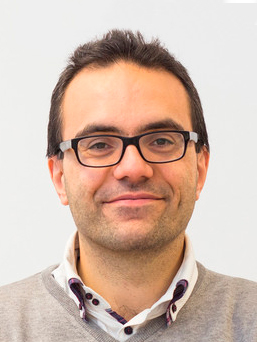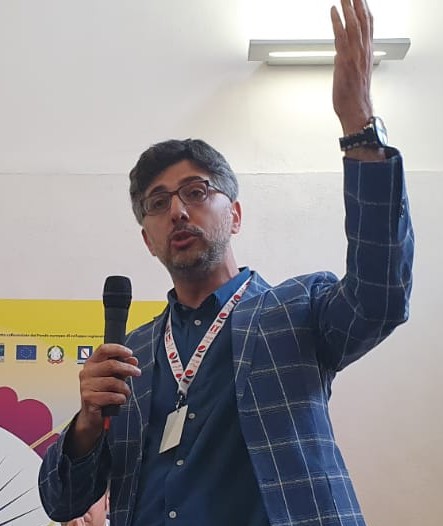Overview
The last years have witnessed an impressive and increasing interest around Distributed Ledger Technology (DLT). A huge number of application fields, including finance, academics, IoT, industries, just to mention some of the most popular ones, are experiencing the advantages of reliable and unalterable information storage and exchange without any trusted third party. Despite this, several issues are still open and deserve discussion in the scientific and professional community. Among them, a prominent role is played by privacy and security. While some security properties (e.g., countering double spending in cryptocurrencies) have been extensively studied, other aspects need to be deepened, ranging from software security to scalability, dependability, up to new challenges, like post-quantum blockchains. Similarly for privacy, where the DLT paradigm also has to coexist with current regulations.
Scope
This workshop is a forum for researchers, developers, and users to discuss issues related to Distributed Ledger Technology and its adoption in research and business scenarios. The primary goal is to foster discussion and cross-fertilisation of ideas among experts in different fields related to DLTs, and thus advance the national and international state-of-the-art. Research, applications, case studies, and experiences concerning DLT are all encouraged with a special focus on the privacy and security issues. The topics of interest of the workshop include (but are not limited to):
- Security of blockchains
- Privacy of blockchains
- Smart Contracts
- Blockchain based IoT security solutions
- Anonymity and privacy issues and measures to enhance them
- Applications using or built on top of blockchains
- Case studies
- Consensus protocols for blockchains
- Formal verification of blockchain protocols and smart contracts
- Fraud detection and financial crime prevention
- Privacy and anonymity enhancing technologies
- Proof of work and its alternatives (e.g., proof of stake, proof-of-burn, virtual mining,…)
- Real word measurements and metrics
- Regulation and law enforcement
- Dependable blockchains
- Formal verification of blockchain code
- Blockchains for dependability
- Blockchain consensus mechanisms
- Post-quantum blockchain
- Blockchain performance evaluation
- Blockchain deployment analysis
- Blockchain and networking
- Blockchain foundations
- Privacy and anonymity on blockchain
- Smart Contracts
- Smart Contracts analysis
- Performance and scalability of blockchain based systems
- Lightweight protocols based on blockchain
- Attacks to blockchain based systems
- Transactions analysis
- Energy consumption issues
- Applications of blockchain technologies
- Legal aspects of blockchains
Contributions
The workshop accepts two kinds of contributions: “research papers” and “oral communications”. Both contributions entail an oral presentation at the workshop. Research papers expected length is 15 pages (Easychair style), even though shorter contributions describing position papers or extended abstracts are welcome. All accepted research papers will be included in workshop proceedings published on CEUR (to be confirmed). Selected contributions will be included in a special issue of Eurasip Journal on Wireless Communications and Networking (https://jwcn-eurasipjournals.springeropen.com/) (to be confirmed). Oral communications will not be included in the proceedings. The authors shall indicate their choice to contribute with an oral communication, writing it alongside the title in the EasyChair window, i.e., “Title (Oral Communication)”.
Registration to the Workshop must be done through the ITASEC website at the following address: https://itasec.it/registration/
Deadlines
Paper submission: December, 1 2019 December, 8 2019
Oral communication abstract submission: December, 1 2019 December, 8 2019
Acceptance Notification: January, 10 2020
Programme
MORNING
Technical Session 1
Chair: Franco Chiaraluce, Università Politecnica delle Marche
Technical Session 2
Chair: Franco Chiaraluce, Università Politecnica delle Marche
AFTERNOON
| 14:30 | Tutorial - Data privacy in blockchains: Theory and practice - Ivan Visconti, University of Salerno |
Technical session 3
Chair: Leonardo Mostarda, Università degli Studi di Camerino
Invited talk: Security and Privacy for Payment Channel Networks

Matteo Maffei, Vienna University
Abstract: The rapid growth in cryptocurrency usage is exposing the scalability issues inherent to permissionless blockchain technology. Payment-channel networks (PCNs) have emerged as the most widely deployed solution to mitigate this problem, allowing the bulk of payments between two users to be carried out off-chain. We will start with an analysis of the security and privacy guarantees offered by current PCNs, highlighting vulnerabilities and pitfalls we recently discovered on popular PCNs. We will then turn our attention on the formalization of what security and privacy mean in the context of PCNs, grounding our reasoning in the Universal Composability framework. Finally, we will present new cryptographic protocols to achieve strong security and privacy guarantees in PCNs, including instantiations based on ECDSA signatures that are thus compatible with scriptless cryptocurrencies (e.g., Bitcoin).
Tutorial: Data Privacy in Blockchains: Theory and Practice

Ivan Visconti, University of Salerno
Abstract: The main appealing feature of a decentralized blockchain is the public verifiability of the transactions that update its state. However this extreme form of transparency is seemingly in contrast with several privacy requirements (e.g., confidential data, GDPR and trade secrets) of many applications. The goal of this tutorial is to present techniques and tools that can allow to mitigate the tension between privacy and public verifiability in blockchains.

All accepted research papers are available at http://ceur-ws.org/Vol-2580.
Organization
Chairs
- Franco Chiaraluce,
Università Politecnica delle Marche - Leonardo Mostarda,
Università degli Studi di Camerino
Steering Commitee
- Leonardo Aniello,
University of Southampton - Massimo Bartoletti,
Università degli Studi di Cagliari - Stefano Bistarelli,
Università degli Studi Perugia - Maurizio Pizzonia,
Università degli Studi Roma Tre - Andrea Vitaletti,
Università degli Studi di Roma "La Sapienza"
Organizing Commitee
- Matteo Micheletti,
Università degli Studi di Camerino - Paolo Santini,
Università Politecnica delle Marche
Technical Program Committee
- Leonardo Aniello,
University of Southampton - Marco Baldi,
Università Politecnica delle Marche - Andrea Bracciali,
University of Stirling - Francesco Buccafurri,
Università degli Studi "Mediterranea" di Reggio Calabria - Stelvio Cimato,
Università degli Studi di Milano - Gabriele D'Angelo,
Università di Bologna - Andrea De Salve,
Consiglio Nazionale delle Ricerche, Italy - Damiano Di Francesco Maesa,
Consiglio Nazionale delle Ricerche, Italy - Stefano Ferretti,
Università di Bologna - Letterio Galletta,
IMT Scuola Alti Studi Lucca - Alberto Leporati,
Università degli Studi di Milano - Michele Marchesi,
Università degli Studi di Cagliari - Paolo Mori,
Istituto di Informatica e Telematica del CNR - Andrea Morichetta,
Università degli Studi di Camerino - Monica Palmirani,
Universita' degli Studi di Bologna - Remo Pareschi,
Universita' degli Studi del Molise - Maurizio Pizzonia,
Università degli Studi Roma Tre - Laura Ricci,
Università di Pisa - Giovanni Sartor,
EUI/CIRSFID - Luca Spalazzi,
Università Politecnica delle Marche - Roberto Zunino,
Università degli Studi di Trento